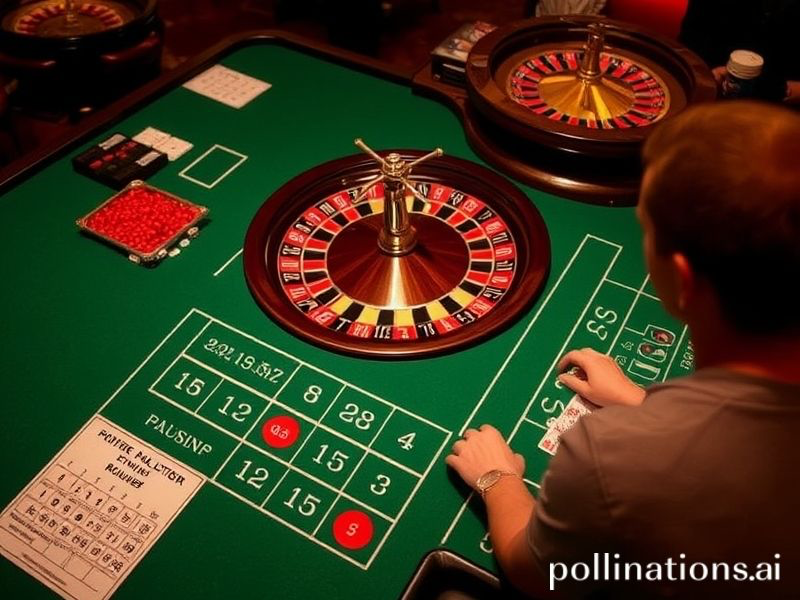
zoo roulette tricks - Behavioral Tips
Exploring Survival Skills in High-Pressure Environments
In this fast-paced era, each of us is seeking ways to maintain calmness and sharpness amidst stressful situations. Today, I want to share some insights on how to observe and utilize subtle cues in high-pressure scenarios to gain a slight edge in various situations. These techniques are not limited to the casino floor; they are equally applicable to the myriad challenges we face in our daily lives. Let’s delve into these "survival skills" and explore how to remain clear-headed and make wise decisions even under immense pressure.
Unveiling the Concept of Zoo Roulette Tricks
First, let’s explore what Zoo Roulette Tricks are. This term may sound whimsical, but it essentially refers to a strategy of gaining a competitive edge in high-pressure environments through observation and analysis. Like observing animals in a zoo, in ZWR, we scrutinize and analyze behaviors, akin to watching dealers and players in a casino, to uncover seemingly insignificant cues that can inform better decision-making.
The essence of this strategy lies in "observation" and "analysis." Just as we can predict an animal’s next move by studying its behavior and habits, in high-pressure settings like a casino or business meetings, we can forecast and influence outcomes by discerning others' behaviors and emotions. These skills are versatile, applicable beyond the casino to everyday scenarios such as workplace competition, business negotiations, and even interpersonal relationships.
The Importance of Mastering These Skills
Why should we invest time in learning these skills? Firstly, they enable us to maintain composure in stressful environments. Amid tension, our minds tend to become cluttered and slow. By mastering and applying these techniques, we can better regulate our emotions, maintain clarity of thought, and thus make more informed decisions. Secondly, these skills help us identify minute details that can confer significant advantages. In scenarios like a casino, the behaviors of dealers and players are often laden with nuanced clues that can help predict future trends and guide timely, wise choices.
Lastly, these skills enhance our competitiveness across various challenges. Whether navigating workplace dynamics, business negotiations, or personal interactions, understanding and anticipating others' behaviors can position us advantageously. By learning and applying these strategies, we can adeptly handle diverse challenges and sustain our competitive edge in high-pressure environments.
The Art of Observing and Analyzing Behavior

In high-stress settings, keen observation and analysis of others' behaviors are crucial. Start by focusing on facial expressions, which are direct reflections of emotions. A furrowed brow or tightly closed mouth might indicate stress or discomfort, whereas a radiant smile and crescent-like eyes could signify relaxation and happiness. Noticing these subtle changes can provide profound insights into others' psychological states, guiding appropriate responses.
Next, pay attention to body language, as it often conveys more than words. Crossed arms might suggest defensiveness or skepticism, whereas open and flowing gestures may denote openness and confidence. Understanding these body language cues can offer deeper insights into others' minds.
Additionally, listen carefully to speech patterns. The confidence or hesitation in someone’s words can reveal their true sentiments. Confident, decisive language suggests self-assurance, while hesitant, uncertain speech may indicate doubts. Grasping these nuances through speech can aid in formulating suitable reactions.
Lastly, observe behavioral patterns to discern habitual tendencies. A preference for conservative choices might indicate a desire for stability, whereas a propensity for risk-taking could suggest a quest for excitement. Recognizing these patterns can enhance understanding of others' psychological dispositions.
Leveraging Observed Cues for Advantage
Utilizing the cues observed in high-pressure situations can facilitate correct decision-making at critical moments. For instance, recognizing signs of tension can prompt proactive measures to maintain composure. Conversely, perceiving someone’s relaxed demeanor can bolster confidence beforehand.
Similarly, if defensive body language is detected, it might be wise to prepare calming strategies accordingly. Open gestures in others should likewise encourage confident preparations.
Understanding speech nuances allows for strategic responses based on perceived confidence levels in others’ voices.
Moreover, aligning with observed behavioral tendencies ensures that strategies resonate with others' inherent preferences, promoting more effective engagements.
Enhancing Competitiveness Through Observation and Analysis
In various contexts such as workplace competition, business negotiations, or interpersonal dealings, keen observation and analysis of behaviors enable better prediction and influence over outcomes, thereby securing advantages. For example, discerning colleagues' needs and expectations during workplace competition can lead to fulfilling them more effectively, thereby advancing one’s position and earning potential.
In business negotiations, similar insights allow for crafting proposals that meet or exceed counterparts’ expectations, leading to more favorable agreements.
In personal relationships, understanding others' desires and expectations fosters stronger bonds and more fruitful collaborations.
Across all scenarios, insightful observation and analysis lead to fulfilling others' needs more adeptly, resulting in superior outcomes and richer experiences.
Conclusion
By learning and applying these skills, we equip ourselves to navigate high-pressure environments with poise and acuity, sustaining competitiveness across various challenges. Let’s continue to explore and refine these "survival skills," enabling us to uphold clear thinking and make judicious decisions even under strenuous conditions.
